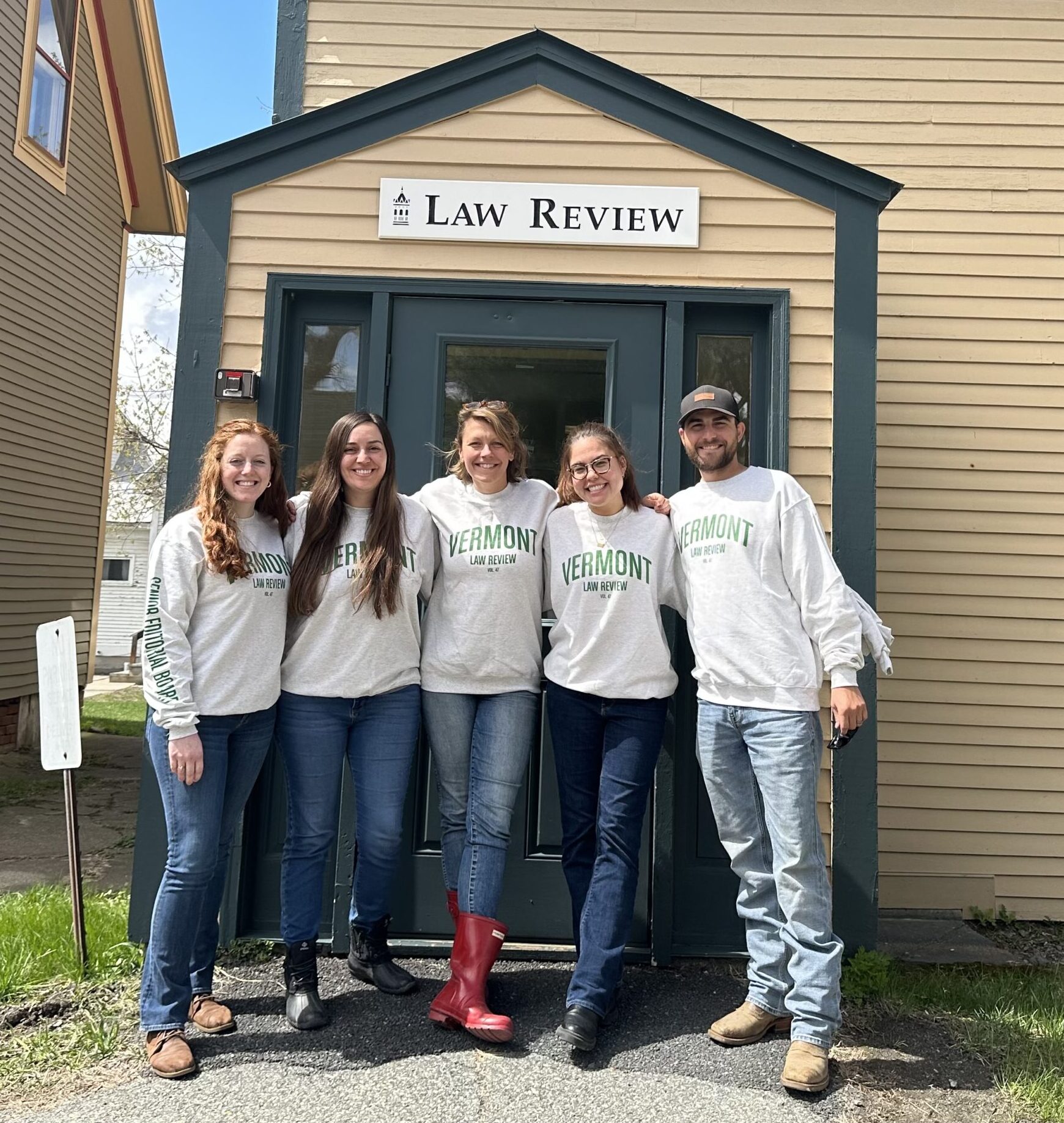About Us
About Us

Volume 47 E-Board from left to right: Morgan Zielinski (Senior Notes Editor), Heidi Johnson (Senior Managing Editor), Emily Davis (Senior Articles Editor), Sara Babcock (Editor-in-Chief), and Mason Fagotti (Business Manager)
The Vermont Law Review is a student-edited legal journal published quarterly under the guidance of five senior student editors and in collaboration with Vermont Law School faculty. Our main objective is to present readers with topical scholarship on a diverse range of legal issues. We seek articles on a broad variety of legal topics and accept submissions of varying lengths from academics, practitioners, and students. Please see the Submissions page for more information on how to submit articles to Vermont Law Review, as well as information on the selection and editing processes.
In addition to publishing articles, the Vermont Law Review produces an annual Symposium dedicated to in-depth exploration of a timely legal issue. Each Symposium is an opportunity for nationally and internationally recognized experts to exchange ideas and for students to connect with leading figures in their fields.
The Vermont Law Review is collaborating with the Vermont Law School Alumni Office to develop a Vermont Law Review Alumni Association. The Alumni Association will connect current members with the network of Law Review alumni as they navigate career options and plan their legal futures, but also as members of the legal community with an interest in discussing their work and collaborating with others in the field.
For more information about the Vermont Law Review, contact us.
For Vermont Law School students interested in joining the Vermont Law Review, please visit our Prospective Students page.
Vermont Law Review Masthead
Volume 48
2023-2024
Editor-in-Chief
Greta Raser
Senior Managing Editor
Serena Nelson
Senior Articles Editor
Grayson Harbury
Senior Notes Editor
Phoebe Howe
Business Manager
Callista Smith
Managing Editors
Noah L. Corbett
Elizabeth Frye
Amy Vedder
Articles Editors
Alexis McCullough
Ian McDonald
Maribel Moses
Katherine Potter
Kyla Schweber
Veronica Shafik
Head Notes Editors
Erin Beidler
Veronica Gassert
Hannah Koniar
Vermont Editor
Natalie May
Symposium Editors
Maylee S. Carbajal
Maia Young
Alumni Editor
Theodore M. Pupilla
Technology Editor
Ryan Sterling
Production Coordinators
Taylor Smith
Coleman O. Thomas
Staff Editors
Isaac Baker
Charlotte Biere
Julia Bloechl
Aly Brines
Hadley Chance
Matt Dederer
Mark Dunckel
Jacob Einbinder
Brett Francis
Nick Glover
Lyndall Goudemond
John-Charles K. Hewitt
Andrew Hockenberry
Mariot Huessy
Evan Kern
Nicholas Kiss
Timothy Lyons
Gabriella Miller
Maxwell Mrus
Faith Orr
Isabella Pickett
Anna Ploof
Melissa Rickenbaker
Theo Rose
Whitney Roth
Leslie Smith
Amanda Tynan
Lindsey Wood
